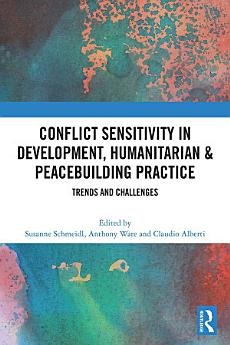Conflict Sensitivity in Development, Humanitarian & Peacebuilding Practice: Trends and Challenges
Über dieses E-Book
Despite the widespread acceptance of conflict sensitivity, particularly in the context of worsening crises, there has been a surprising lack of critical discussion and evaluation of the framework and its application. This book fills this gap by bringing together a diverse collection of articles, practice notes and reflections from academics and practitioners in the field of conflict sensitivity. It provides a comprehensive platform for valuable debate, highlighting strengths, areas for improvement and practical guidance for real- world application, based on 25 years of conflict sensitivity/ do no harm practice and innovation. By integrating insights from practitioners, the book aims to bridge the gap between theory and practice. Advocating the systematic integration of conflict sensitivity into humanitarian, development and peacebuilding efforts, the book offers practical guidance for implementation and adaptation in different contexts and programmes.
As a valuable resource, it deepens understanding and promotes accountability to the populations that humanitarian, development and peacebuilding actors seek to support, including actors advancing conflict sensitivity in their own contexts. It serves as a springboard for further academic research on conflict sensitivity. This book was originally published as a special issue of Development in Practice.
Autoren-Profil
Susanne Schmeidl is an experienced peacebuilding researcher and practitioner with a focus on Afghanistan, conflict sensitivity, forced displacement, indigenous peacebuilding approaches and critical methodologies. She has over two decades of experience working in (post)- conflict settings and is currently advising various organisations on how to work with conflict sensitivity in Afghanistan.
Anthony Ware is Associate Professor in International and Community Development at Alfred Deakin Institution, Deakin University, Melbourne, Australia. His research focuses on humanitarian/ international development approaches in conflict- affected situations, with particular interest in Myanmar, the Rohingya conflict, conflict- sensitivity/ do no harm, everyday peace and community- led development.
Claudio Alberti, an associate researcher at swisspeace, holds a PhD from Trinity College Dublin. He specialises in adaptive peacebuilding approaches and the linkages between development, humanitarian and peacebuilding. Over the past decade, he has held progressively responsible positions in these sectors across various contexts.








